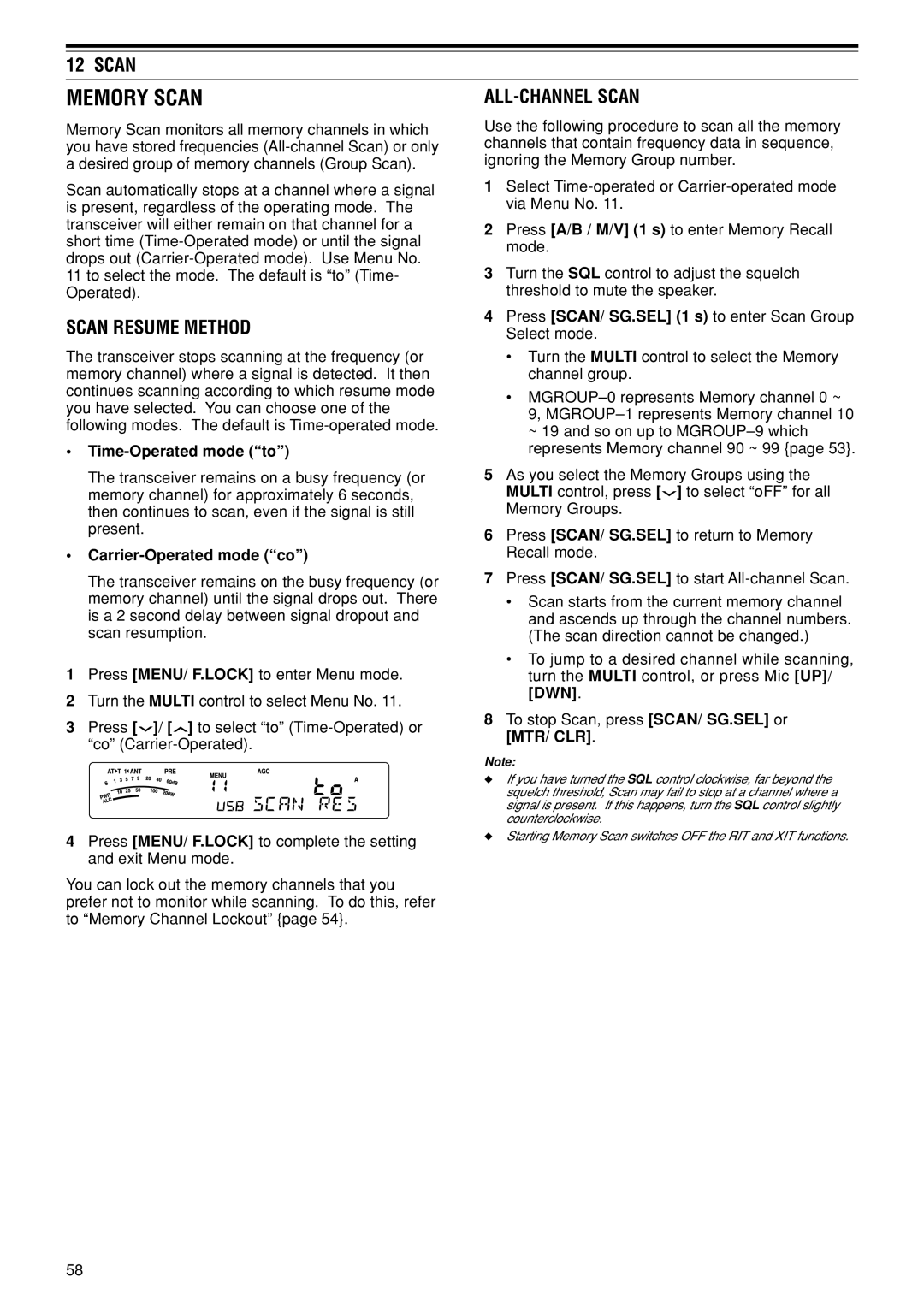
12 SCAN
MEMORY SCAN |
|
Memory Scan monitors all memory channels in which you have stored frequencies
Scan automatically stops at a channel where a signal is present, regardless of the operating mode. The transceiver will either remain on that channel for a short time
SCAN RESUME METHOD
The transceiver stops scanning at the frequency (or memory channel) where a signal is detected. It then continues scanning according to which resume mode you have selected. You can choose one of the following modes. The default is
•Time-Operated mode (“to”)
The transceiver remains on a busy frequency (or memory channel) for approximately 6 seconds, then continues to scan, even if the signal is still present.
•Carrier-Operated mode (“co”)
The transceiver remains on the busy frequency (or memory channel) until the signal drops out. There is a 2 second delay between signal dropout and scan resumption.
1Press [MENU/ F.LOCK] to enter Menu mode.
2Turn the MULTI control to select Menu No. 11.
3Press [![]() ]/ [
]/ [![]() ] to select ÒtoÓ
] to select ÒtoÓ
4Press [MENU/ F.LOCK] to complete the setting and exit Menu mode.
You can lock out the memory channels that you prefer not to monitor while scanning. To do this, refer to ÒMemory Channel LockoutÓ {page 54}.
Use the following procedure to scan all the memory channels that contain frequency data in sequence, ignoring the Memory Group number.
1Select
2Press [A/B / M/V] (1 s) to enter Memory Recall mode.
3Turn the SQL control to adjust the squelch threshold to mute the speaker.
4Press [SCAN/ SG.SEL] (1 s) to enter Scan Group Select mode.
¥Turn the MULTI control to select the Memory channel group.
¥MGROUPÐ0 represents Memory channel 0 ~ 9, MGROUPÐ1 represents Memory channel 10 ~ 19 and so on up to MGROUPÐ9 which represents Memory channel 90 ~ 99 {page 53}.
5As you select the Memory Groups using the MULTI control, press [![]() ] to select ÒoFFÓ for all Memory Groups.
] to select ÒoFFÓ for all Memory Groups.
6Press [SCAN/ SG.SEL] to return to Memory Recall mode.
7Press [SCAN/ SG.SEL] to start
¥Scan starts from the current memory channel and ascends up through the channel numbers. (The scan direction cannot be changed.)
¥To jump to a desired channel while scanning, turn the MULTI control, or press Mic [UP]/ [DWN].
8To stop Scan, press [SCAN/ SG.SEL] or [MTR/ CLR].
Note:
◆If you have turned the SQL control clockwise, far beyond the squelch threshold, Scan may fail to stop at a channel where a signal is present. If this happens, turn the SQL control slightly counterclockwise.
◆Starting Memory Scan switches OFF the RIT and XIT functions.
58
